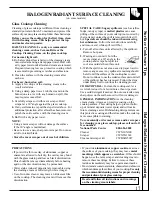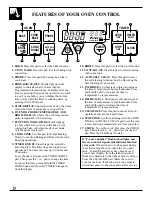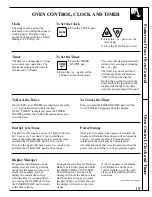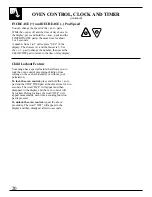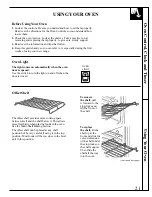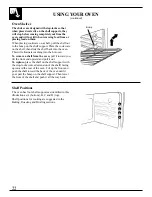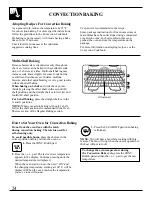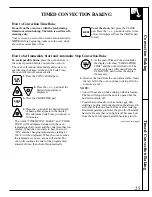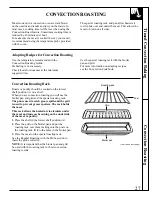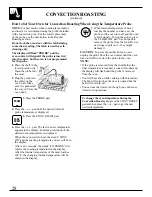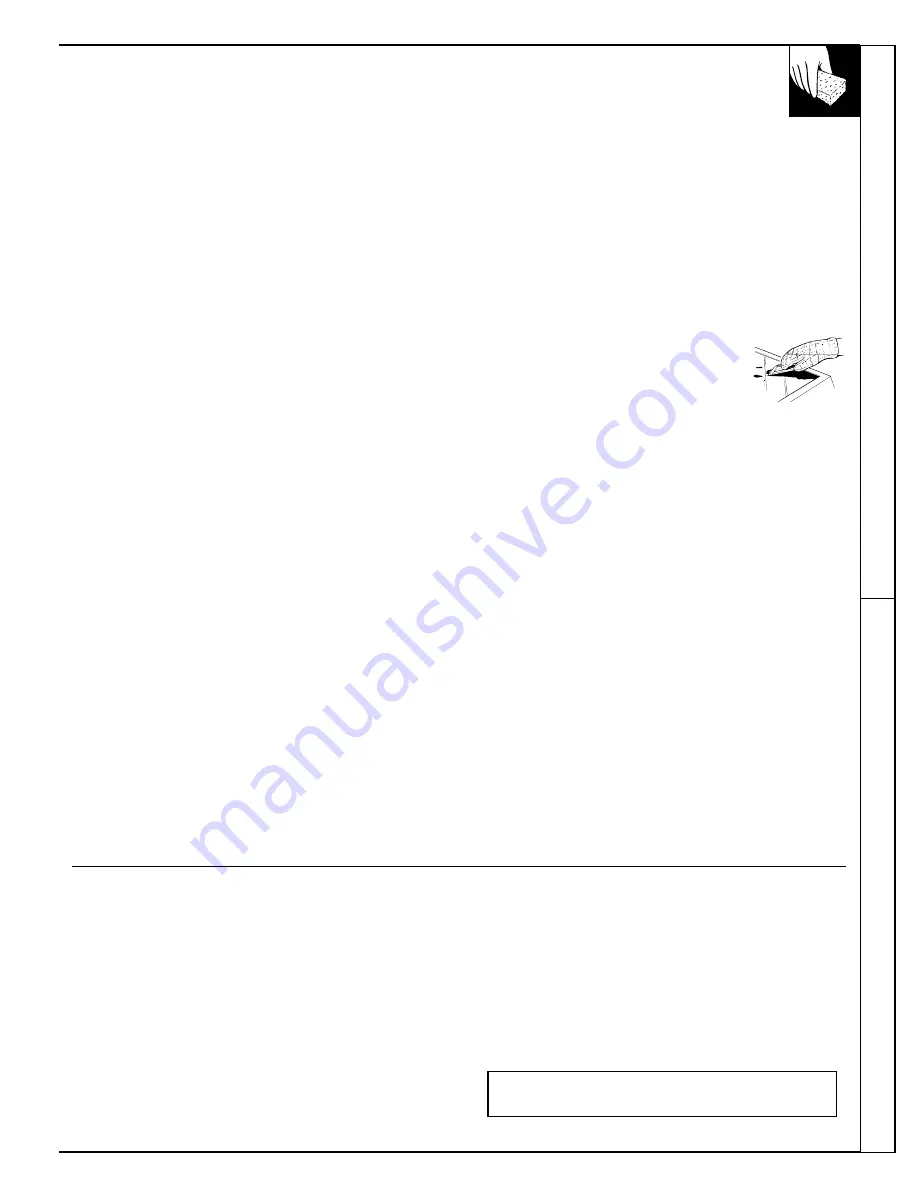
Surface Cookwar
e T
ips
Halogen/Radiant Surface Cleaning
HALOGEN/RADIANT SURFACE CLEANING
(on some models)
Glass Cooktop Cleaning
Cleaning of glass cooktops is different from cleaning a
standard porcelain finish. To maintain and protect the
surface of your new glass cooktop follow these basic steps.
Before you use the cooktop for the first time, clean
it with cleaning cream. This helps protect the top
and makes clean-up easier.
DAILY CLEANING: Use only a recommended
cleaning cream, such as Cerama Brite or the
Cooktop Cleaning Creme, on the glass cooktop.
For normal, light soil:
1. Rub a few drops (less is better) of the cleaning cream
onto soiled area using a damp paper towel. Buff with
a dry paper towel until all soil and cream are removed.
Frequent cleaning leaves a protective coating which
is essential in preventing scratches and abrasions.
2. Clean the surface with the cleaning cream after
each use.
For heavy, burned on soil:
1. Apply a few drops of the cleaning cream to the
(cool) soiled area.
2. Using a damp paper towel, rub the cream into the
burned on area. As with any burned on spill, this
may require some effort.
3. Carefully scrape soil with razor scraper. Hold
scraper at a 30° angle against the glass cooktop.
4. If any soil remains, repeat the steps listed above. For
additional protection, after all soil has been removed,
polish the entire surface with the cleaning cream.
5. Buff with a dry paper towel.
NOTE:
• Using a razor scraper will not damage the surface
if the 30° angle is maintained.
• Be sure to use a new, sharp razor scraper. Do not use
a dull or nicked blade.
• Store the razor scraper out of reach of children.
SPECIAL CARE: Sugary spillovers (such as jellies,
fudge, candy syrups) or melted plastics can cause
pitting of the surface of your cooktop (not covered by
the warranty) unless the spill is removed while still
hot. Special care should be taken when removing
hot substances. Follow these instructions carefully
and remove soil while spill is still hot.
1. Turn off all surface units affected by the spillover.
Remove hot pans.
2. Wearing an oven mitt, hold the
razor scraper at a 30° angle to the
cooktop and scrape hot spill to a
cool area outside the surface unit.
3. With the spill in a cool area, use a dry paper towel to
remove any excess. Any spillover remaining should
be left until the surface of the cooktop has cooled.
Do not continue to use the soiled surface unit until all
of the spillover has been removed. Follow the steps
under Heavy Soil to continue the cleaning process.
COOKTOP SEAL: To clean the cooktop seal, let a
wet cloth rest on it for a few minutes, then wipe clean.
Use a mild detergent if needed. Do not use a knife or any
sharp object on the seal because it will cut or damage it.
GENERAL INFORMATION: As the cleaning
cream cleans, it leaves a protective coating on the
cooktop surface. This coating helps to prevent build-
up of mineral deposits (water spots) and will make
future cleaning easier. Dishwashing detergents remove
this protective coating and therefore make the cooktop
more susceptible to staining.
To conveniently order more cream and/or scrapers
for cleaning your glass cooktop, please call our toll
free number:
National Parts Center
800-626-2002
Cleaner #
WX10X300
Scraper #
WX5X1614
Cream and scraper kit
# WB64X5027
PRECAUTIONS
• If pots with a thin overlay of aluminum, copper or
enamel are allowed to boil dry, the overlay may bond
with the glass cooktop and leave a black discoloration.
This should be removed immediately before heating
again or the discoloration may be permanent.
• Water stains (mineral deposits) are removable using
the cleaning cream or full strength white vinegar.
• Use of window cleaner may leave an iridescent film
on the cooktop. The cleaning cream will remove this
discoloration.
• If you slide aluminum or copper cookware across
the surface of your cooktop, they may leave metal
markings which appear as scratches. If this should
happen, use the razor scraper and cleaning cream to
remove these markings. Failure to remove these
residues immediately may leave permanent marks.
• Most cleaners contain ammonia, chemicals and abrasives
which can damage the surface of your cooktop. Use only
the recommended cleaning cream for proper cleaning
and protection of your glass cooktop.
Read and follow all instructions and warnings
on the cleaning cream labels.
17
Summary of Contents for JBP95
Page 57: ...57 The Problem Solver NOTES...
Page 58: ...NOTES 58...















